Mac was a relative newbie to the streets but it certainly doesn’t show.
_
For both of you, this was your first time going to Japan.
What do you remember about arriving in the country?

Mac Forehand:We flew in together.
It was just us two and we got there and had to figure out the whole train situation.
All of the directions are in Japanese.
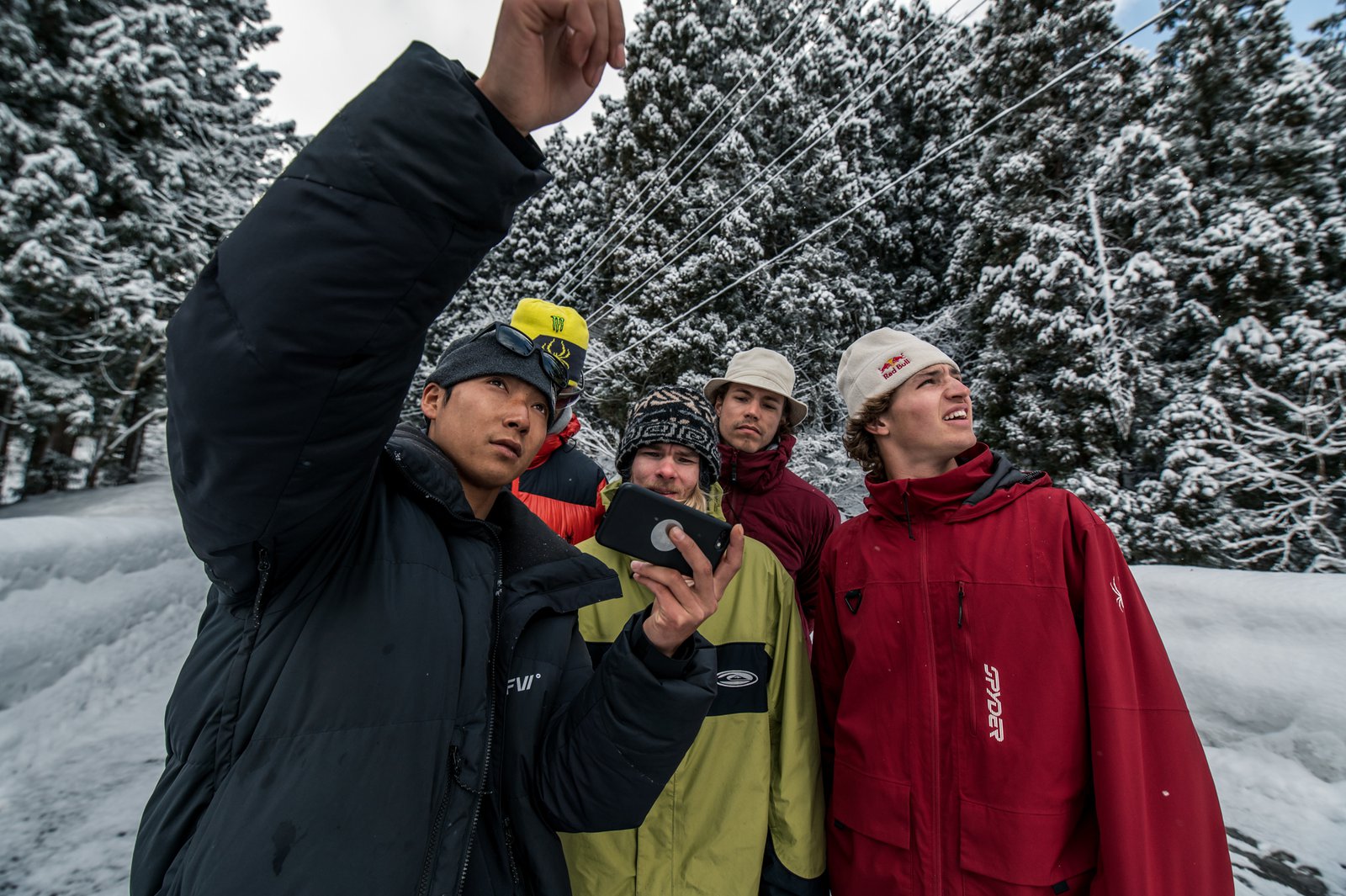
There’s no English anywhere.
We were asking a lot of like the train conductors and local workers.
They kind of spoke English, but not well.
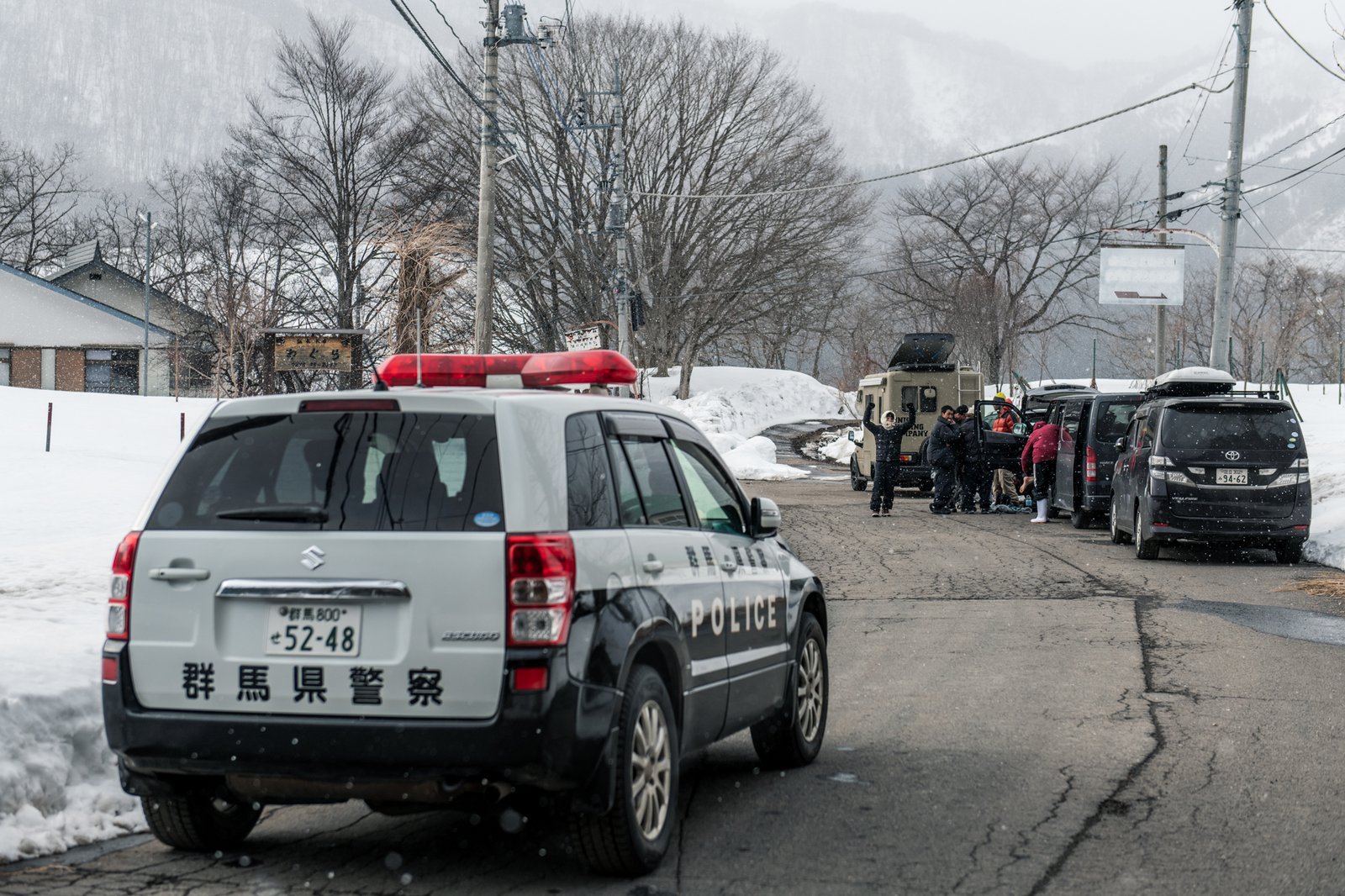
I remember so vividly getting there and looking at this map.
The map was so confusing.
Like, little colored lines going everywhere and absolutely nothing in English.
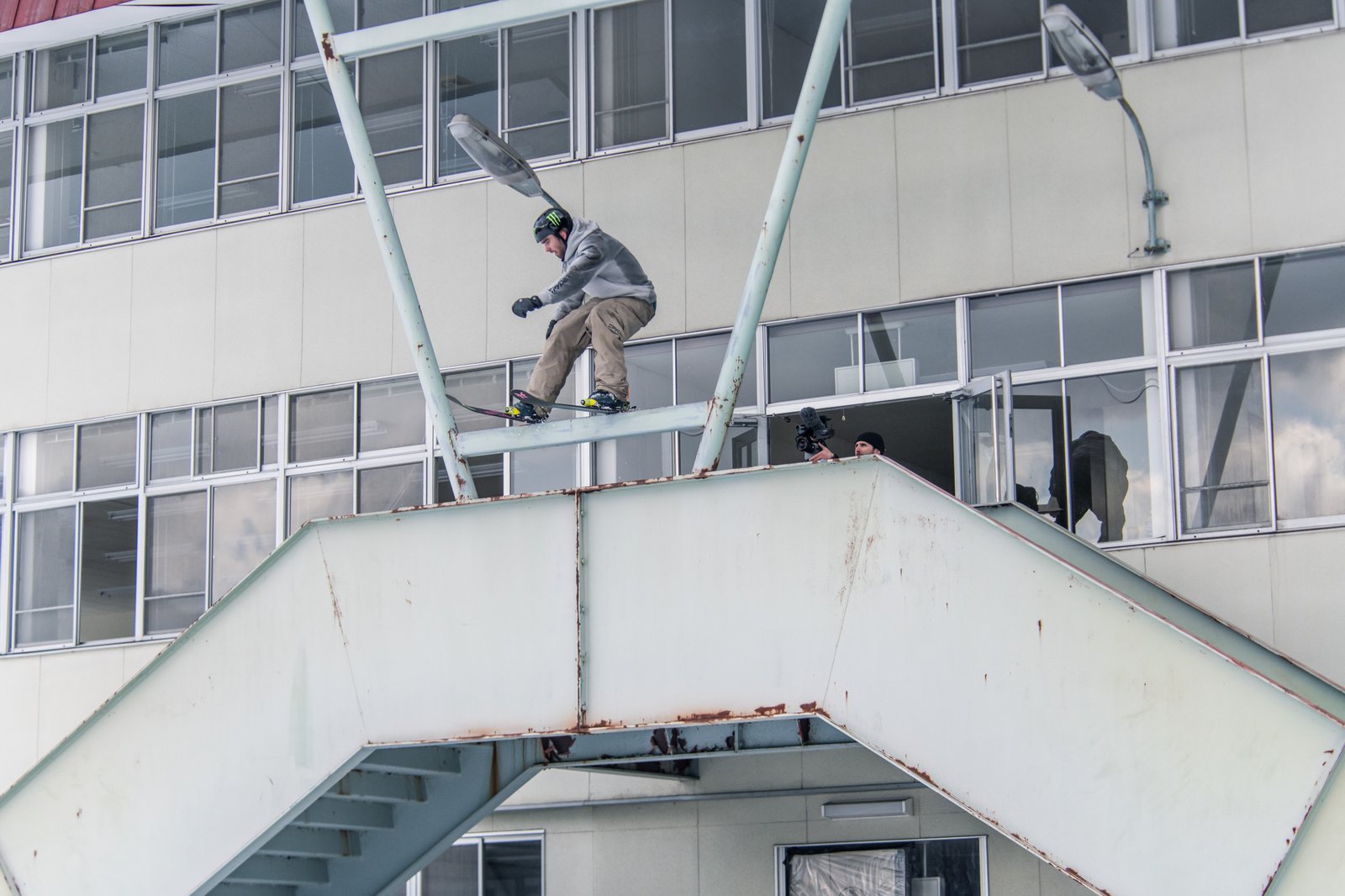
I was kind of nervous at first but it was pretty easy to get around in the end.
How was it having Koga [Hoshino] as your local guide, with the language barrier in effect?
Toshi speaks fluent Japanese and English.
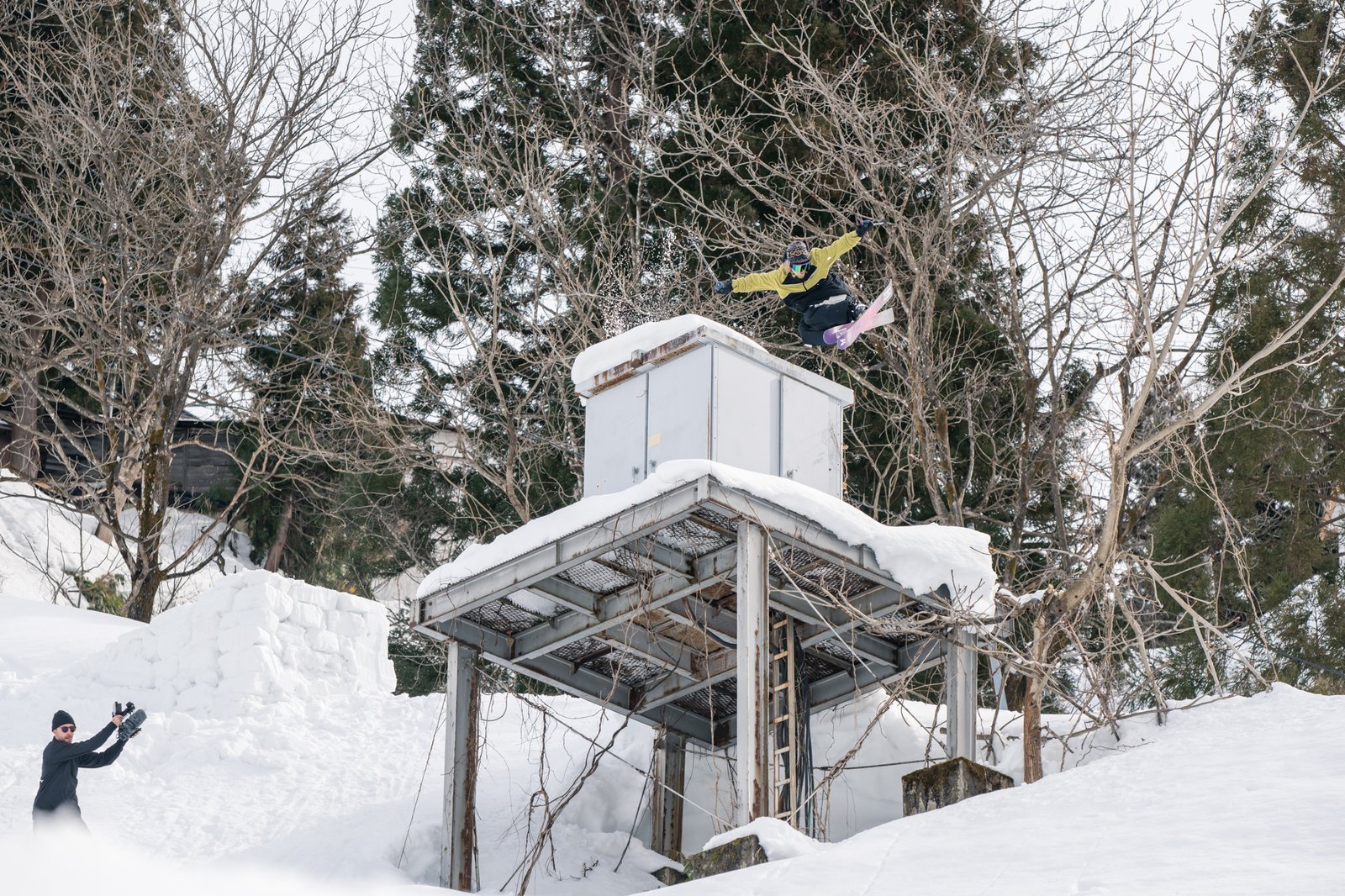
But it was so nice even with the language barrier.
Skiing is skiing, you know?
You don’t really have to talk about it.
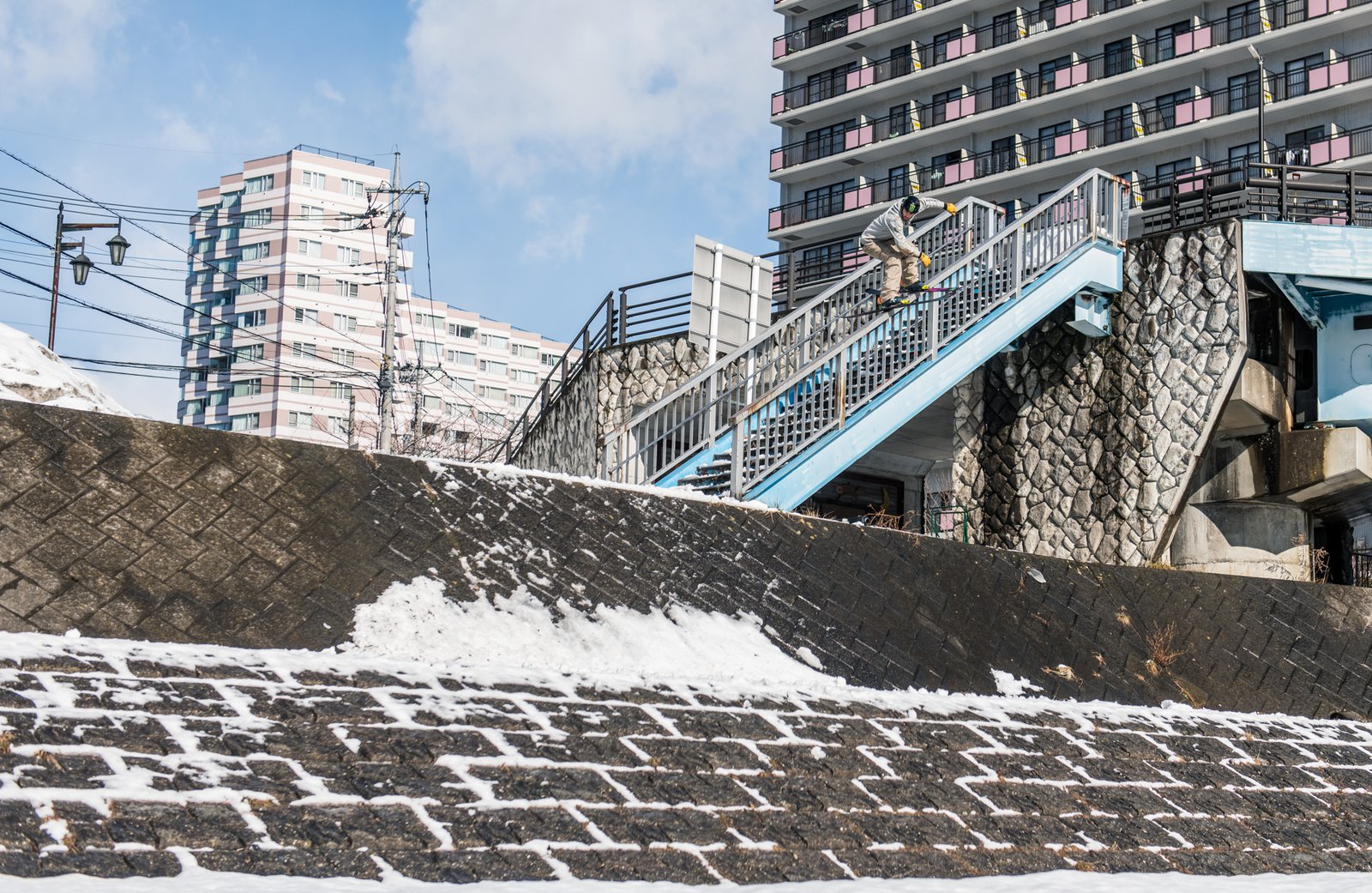
We all understood what we were trying to get done together.
Finding the spots that we hit would have been nearly impossible without him.
He had so many little, secret zones everywhere.
I have no idea how he found those features.
He’s a crazy skier, too.
Like, really, really good skier.
Super gnarly in the streets.
We wouldn’t have found a lot of them normally because they were super low key.
Like in an abandoned building or something.
Not as obvious as other places where I’ve hit urban.
We were in his hometown.
He knew a ton of spots out there that he had already scoped out.
He’s got a really dope, tight-knit crew of homies.
They came and helped us out at a couple of spots.
Alex Hall:For sure.
It doesn’t matter what language you speak.
We’re just super hyped for each other.
It was nice to have some of those moments because unfortunately he got hurt halfway through the trip.
I remember when we were building features we didn’t really have to communicate.
It was cool to see how similar our interests are and how we think about skiing.
There was one shot in the movie where you’re talking to a police officer.
How did the local community feel about you guys doing what you were doing in the streets?
Mac Forehand:The bust factor was high in a lot of places.
But it’s funny, if you got busted the cops weren’t really pissed.
They were almost sorry that they had to kick us out.
But they’re kicking you out because it’s not accepted to do stuff like that.
Like, you are scraping for snow.
Mac Forehand:Honestly before this trip I hadn’t hit a lot of street before.
We had to dig out so much, it was crazy.
There was another rail we were looking at that we never ended up hitting.
I think it would have taken us five hours to dig out.
It was a six-kink, I think.
And every stair had probably four feet of snow on it.
Alex Hall: We actually started trying to avoid rails that were too snowed in.
Do you guys have a favorite feature or trick from the trip?
Mac Forehand:I think the first shot from the movie was my favorite.
The front-three on the up, gap, down.
I was probably the most scared for that, and it was the first day of the trip.
That rail was sick.
There was another rail we hit, a flat-to-close-out.
I crashed and dislocated my shoulder.
That thing was sick.
And it’s pretty rare to come by a rail like that where we could use natural speed.
We just went up a little hill.
What was your daily schedule?
Were you going super hard or did you have some time to also explore local culture?
Alex Hall:We went pretty hard.
It was a lot of skiing.
That city is crazy.
It’s so different from any other city I’ve ever been to.
Just the cultural aspect of it.
Like there’s like a crazy old temple one second.
Then you walk a few streets over and theres like a huge arcade gaming center.
It’s a really interesting mix between traditional culture and very poppy, new culture.
They’re everywhere in Japan, like our 7-Eleven.
You just pick out your food for the day.
And then wed go to the first spot.
We tried to hit two spots a day mostly, and it would take all day.
Then go to bed early and do the same thing the next day.
We had a lot of good food.
I think I had some of the best ramen of my life, in Tokyo.
Alex:We never had a bad meal.
We were having a bunch of sushi.
The sushi conveyor belts were hitting hard.
You also got to rip some pow towards the end of the trip.
Was it what you had dreamed of as far as Japow?
Mac Forehand:Yeah, it was sick.
It wasn’t the steepest terrain ever.
But it’s crazy because we didn’t really hike that much.
Like, nobody goes in the trees there.
One day it probably snowed two or two-and-a-half feet overnight.
And there was a ton of snow underneath that too.
There were some pockets where you went so insanely deep under the snow.
Alex Hall:My personal favorite was the night skiing.
We went to this random little resort that had maybe two chairs.
It was completely dead and we were just skiing hot laps at night.
On the funnest little terrain.
But during the week it’s very quiet.
It felt like we were the only international people skiing there on those pow days.
Everyone else was local.
That was super cool.
I’ve never seen it that cheap.
It feels like when you’re at those smaller resorts you go back in time.
They’re all these super old-school-feeling resorts.
I’ve never really experienced that before.
It was pretty cool to see that.
What is it that you love most about making ski films?
Id go ski in the park and Id realize I could do some of those things.
When you get to make these movies, it’s all as a team.
It’s always a team effort to find a spot or build a feature.
You could never get it done on your own.
you should probably do it with other people to get these shots.
That’s why I really love these film trips.
I love getting to travel to all these random places.
When you’re on the competition circuit, a lot of those events will be in similar places.